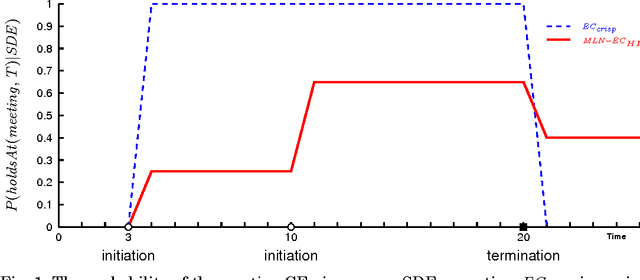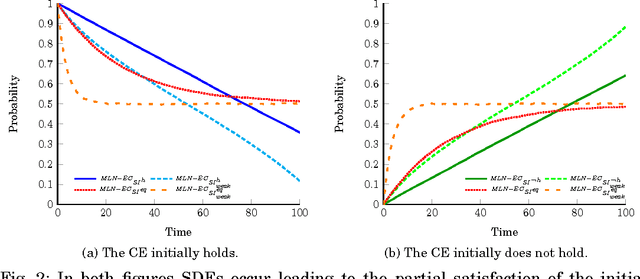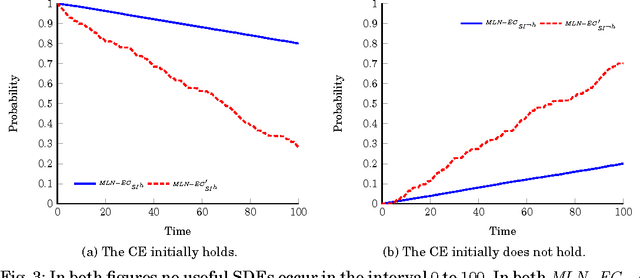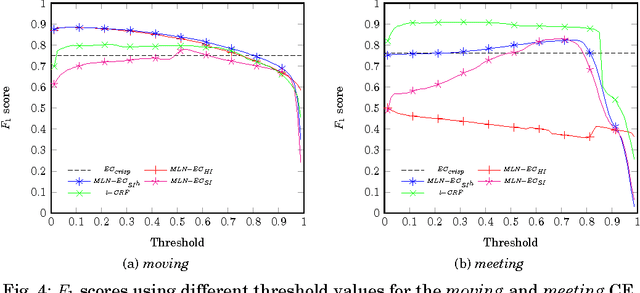Anastasios Skarlatidis
Probabilistic Event Calculus for Event Recognition
Aug 15, 2013



Abstract:Symbolic event recognition systems have been successfully applied to a variety of application domains, extracting useful information in the form of events, allowing experts or other systems to monitor and respond when significant events are recognised. In a typical event recognition application, however, these systems often have to deal with a significant amount of uncertainty. In this paper, we address the issue of uncertainty in logic-based event recognition by extending the Event Calculus with probabilistic reasoning. Markov Logic Networks are a natural candidate for our logic-based formalism. However, the temporal semantics of the Event Calculus introduce a number of challenges for the proposed model. We show how and under what assumptions we can overcome these problems. Additionally, we study how probabilistic modelling changes the behaviour of the formalism, affecting its key property, the inertia of fluents. Furthermore, we demonstrate the advantages of the probabilistic Event Calculus through examples and experiments in the domain of activity recognition, using a publicly available dataset for video surveillance.
A Probabilistic Logic Programming Event Calculus
Apr 29, 2013



Abstract:We present a system for recognising human activity given a symbolic representation of video content. The input of our system is a set of time-stamped short-term activities (STA) detected on video frames. The output is a set of recognised long-term activities (LTA), which are pre-defined temporal combinations of STA. The constraints on the STA that, if satisfied, lead to the recognition of a LTA, have been expressed using a dialect of the Event Calculus. In order to handle the uncertainty that naturally occurs in human activity recognition, we adapted this dialect to a state-of-the-art probabilistic logic programming framework. We present a detailed evaluation and comparison of the crisp and probabilistic approaches through experimentation on a benchmark dataset of human surveillance videos.
 Add to Chrome
Add to Chrome Add to Firefox
Add to Firefox Add to Edge
Add to Edge